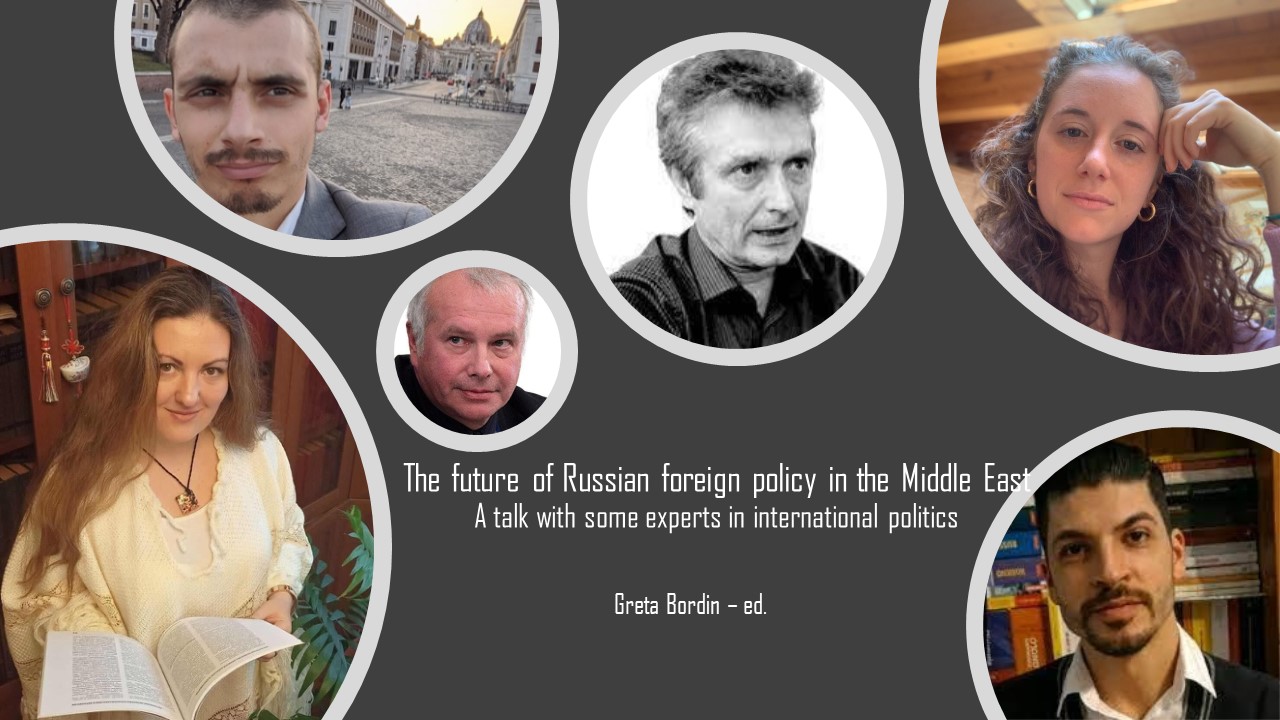Author: Greta Bordin – 11/10/2021
In the aftermath of the collapse of the Soviet Union and, in particular, in the mid-2010s as a result of and the various “Color Revolutions” experienced in the former Warsaw Pact countries and the 2010 Arab Spring, a renewed Russian interest in the Middle East emerged. A geoeconomic, geostrategic, and geopolitical interest, dedicated to the regaining of a historic point fixation identified in Russia as a great power in the international order. Indeed, the consolidation of a non-dynamic economic system coupled with the guarantee of national security from external threats turns out to be the primary objectives pursued by the Russian leader in the Middle Eastern quadrant. Yet, contemporary challenges – from the Covid-19 pandemic crisis to the ensuing economic and oil crisis, as well as the growing strength of regional and international players with a marked influence in the region – could prove detrimental in the middle and long-term.
The future of Russian foreign policy in the Middle East. A talk with some experts in international politics:
Côme Carpentier de Gourdon – Alexander Rahr – Emanuel Pietrobon – Ksenia Tabarinzeva-Romanova – Maurizio Vezzosi
Greta Bordin (ed.)
V>: How important is the Middle East for Moscow from a geostrategic point of view?
V>: To what extent has or will the pandemic crisis have a negative impact on Putin’s geopolitical and geo-economic objectives in the Middle East?
V>: How is the Russian foreign agenda affected (if it will be affected) by the increasing Chinese presence in the Middle East, especially in the Persian Gulf area?
V>: What about American withdrawal from Afghanistan and the recent dramatic developments? Despite the intention not to legalise the Taliban, indeed, Putin seems willing to conclude new agreements and accords with the newly born Islamic Emirate.
V>: Will there be changes in 2024 once Putin finishes his presidential term? If Putin decides not to run again, is there a possibility that he will follow the same path as the former Kazakhstan’s President, Nursultan Nazarbayev, by ruling the country’s Security Council, continuing to shape Russian foreign policy in the Middle East?
Continue reading, download the Analytical Dossier AD_30_2021 ISSN 2704-6419

